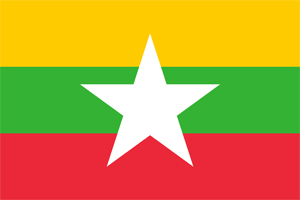Finding out how to transform war economies into peace economies
(
Non-governmental organization (NGO)
)
#SDGAction43352
Description
• Failure to tackle illicit economies as part of development rather than simply a law enforcement issue leads to missed opportunities for peacebuilding.
• Reliance on the SDG metrics alone (targets and indicators) based on the nation-state as the unit of analysis makes the SDGs blind to the cross-border impacts of illicit economies and ignores the agency of people at sub-national level making unorthodox choices to survive.
Support for development initiatives in conflict-affected territories where illicit economies have become the means for survival are strengthened.
There is more awareness about the stigmatization of illicit crop producers. They deserve development support and are the communities that are most vulnerable and left behind.
The SDGs are tracked and monitored beyond the state-centric model
Illicit livelihoods are addressed in peace processes.
SDGS & Targets
Goal 16
Promote peaceful and inclusive societies for sustainable development, provide access to justice for all and build effective, accountable and inclusive institutions at all levels
16.1
Significantly reduce all forms of violence and related death rates everywhere
16.1.1
16.1.2
16.1.3
Proportion of population subjected to (a) physical violence, (b) psychological violence and/or (c) sexual violence in the previous 12 months
16.1.4
Proportion of population that feel safe walking alone around the area they live after dark
16.2
End abuse, exploitation, trafficking and all forms of violence against and torture of children
16.2.1
Proportion of children aged 1–17 years who experienced any physical punishment and/or psychological aggression by caregivers in the past month
16.2.2
16.2.3
Proportion of young women and men aged 18–29 years who experienced sexual violence by age 18
16.3
Promote the rule of law at the national and international levels and ensure equal access to justice for all
16.3.1
Proportion of victims of (a) physical, (b) psychological and/or (c) sexual violence in the previous 12 months who reported their victimization to competent authorities or other officially recognized conflict resolution mechanisms
16.3.2
16.3.3
Proportion of the population who have experienced a dispute in the past two years and who accessed a formal or informal dispute resolution mechanism, by type of mechanism
16.4
By 2030, significantly reduce illicit financial and arms flows, strengthen the recovery and return of stolen assets and combat all forms of organized crime
16.4.1
16.4.2
16.5
Substantially reduce corruption and bribery in all their forms
16.5.1
16.5.2
16.6
Develop effective, accountable and transparent institutions at all levels
16.6.1
16.6.2
Proportion of population satisfied with their last experience of public services
16.7
Ensure responsive, inclusive, participatory and representative decision-making at all levels
16.7.1
Proportions of positions in national and local institutions, including (a) the legislatures; (b) the public service; and (c) the judiciary, compared to national distributions, by sex, age, persons with disabilities and population groups
16.7.2
16.8
Broaden and strengthen the participation of developing countries in the institutions of global governance
16.8.1
Proportion of members and voting rights of developing countries in international organizations
16.9
By 2030, provide legal identity for all, including birth registration
16.9.1
16.10
Ensure public access to information and protect fundamental freedoms, in accordance with national legislation and international agreements
16.10.1
16.10.2
16.a
Strengthen relevant national institutions, including through international cooperation, for building capacity at all levels, in particular in developing countries, to prevent violence and combat terrorism and crime
16.a.1
16.b
Promote and enforce non-discriminatory laws and policies for sustainable development
16.b.1
SDG 14 targets covered
| Name | Description |
|---|
Deliverables & Timeline
Resources mobilized
Partnership Progress
Feedback
Action Network

Timeline
Entity
SDGs
Region
- Global
Geographical coverage
More information
Countries



Contact Information
Eric Gutierrez, Senior Adviser

